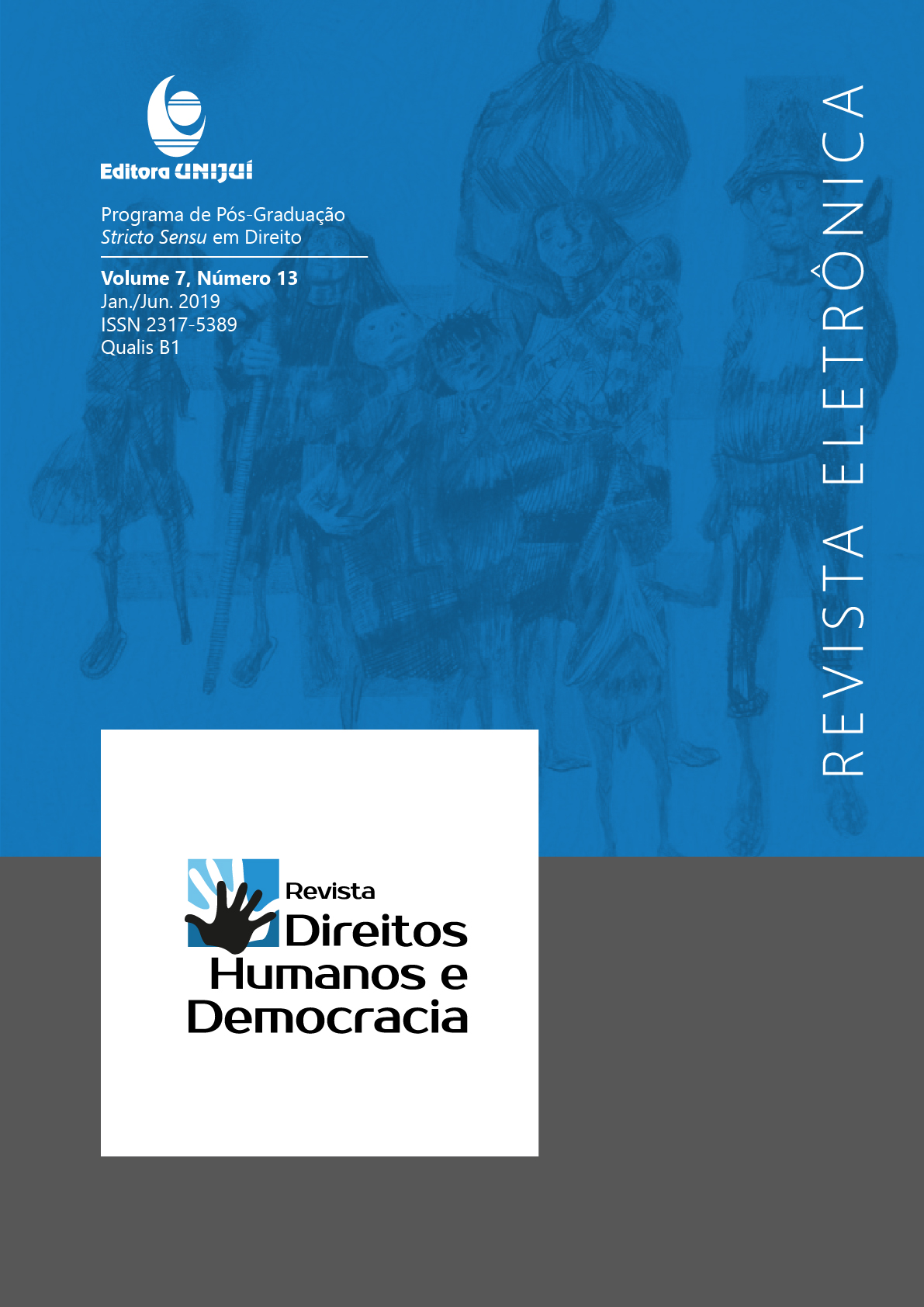ACESSO À JUSTIÇA PARA MULHERES EM SITUAÇÃO DE VIOLÊNCIA: ANÁLISE DA ATUAÇÃO DA DELEGACIA DA MULHER À LUZ DA JUSTIÇA SOCIAL PAUTADA NA ÉTICA DA ALTERIDADE E NA RESPONSABILIDADE
DOI:
https://doi.org/10.21527/2317-5389.2019.13.75-89Abstract
A Lei 11.340 de 2006, Lei Maria da Penha, publicada há 10 anos, não representou a redução da violência doméstica e sexual contra a mulher. Os mecanismos existentes antes da referida lei também não foram eficientes para reduzir os casos de violência de gênero no Brasil. O estudo analisou as delegacias especializadas em violência contra a mulher para verificar se sua atuação condiz com a base teórica que sustenta os tratados internacionais e documentos ratificados pelo Brasil para a erradicação da violência contra a mulher, utilizando as teorias da justiça social de Emmanuel Lévinas, da ética da responsabilidade e da alteridade, e de Nancy Fraser, com sua visão tridimensional das políticas públicas de gênero, pela metodologia do múltiplo dialético, concluindo pela necessidade de um repensar a execução das delegacias especializadas para que representem um acesso à justiça real e ético.
Downloads
Published
How to Cite
Issue
Section
License
By publishing in the Revista Direitos Humanos e Democracia, authors agree to the following terms:
Articles are licensed under the Creative Commons Atribuição 4.0 Internacional (CC BY 4.0), which allows:
Share — copy and redistribute the material in any medium or format;
Adapt — remix, transform, and build upon the material for any purpose, including commercial use.
These permissions are irrevocable, provided the following terms are respected:
Attribution — authors must be properly credited, with a link to the license and indication of any modifications made;
No additional restrictions — no legal or technological measures may be applied that restrict the use permitted by the license.
Notices:
The license does not apply to elements in the public domain or covered by legal exceptions.
The license does not grant all rights required for specific uses (e.g., image rights, privacy, or moral rights).
The journal is not responsible for opinions expressed in the articles, which remain the sole responsibility of the authors. The Editor, with the support of the Editorial Committee, reserves the right to suggest or request modifications when necessary.
Only original scientific articles presenting research results of interest, not previously published or simultaneously submitted to another journal with the same purpose, will be accepted.
References to trademarks or specific products are intended solely for identification purposes and do not imply any promotional endorsement by the authors or the journal.
License Agreement: Authors retain copyright over their articles and grant the Revista Direitos Humanos e Democracia the right of first publication.













